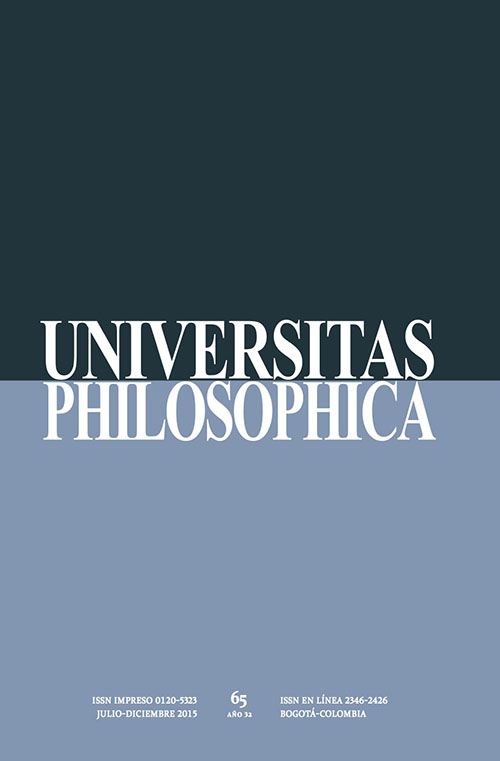Resumen
La obra del jesuita Juan Martínez de Ripalda Sobre el uso y el abuso de la doctrina del Divino Tomás (1704) surge como respuesta a las acusaciones doctrinales de la comunidad dominica en la controversia sostenida durante el siglo XVII con la Compañía de Jesús en torno a los privilegios académicos universitarios en el Nuevo Reino de Granada. La obra no solo es un testimonio histórico del pleito, sino que también permite conocer el contenido temático de las enseñanzas filosóficas de la escuela jesuita en la Colonia. El presente artículo ubica el contexto histórico general en que surge la obra para analizar el talante moderno de la doctrina del jesuita Juan Martínez de Ripalda sobre la naturaleza del conocimiento humano.
Esta revista científica se encuentra registrada bajo la licencia Creative Commons Reconocimiento 4.0 Internacional. Por lo tanto, esta obra se puede reproducir, distribuir y comunicar públicamente en formato digital, siempre que se reconozca el nombre de los autores y a la Pontificia Universidad Javeriana. Se permite citar, adaptar, transformar, autoarchivar, republicar y crear a partir del material, para cualquier finalidad (incluso comercial), siempre que se reconozca adecuadamente la autoría, se proporcione un enlace a la obra original y se indique si se han realizado cambios. La Pontificia Universidad Javeriana no retiene los derechos sobre las obras publicadas y los contenidos son responsabilidad exclusiva de los autores, quienes conservan sus derechos morales, intelectuales, de privacidad y publicidad.
El aval sobre la intervención de la obra (revisión, corrección de estilo, traducción, diagramación) y su posterior divulgación se otorga mediante una licencia de uso y no a través de una cesión de derechos, lo que representa que la revista y la Pontificia Universidad Javeriana se eximen de cualquier responsabilidad que se pueda derivar de una mala práctica ética por parte de los autores. En consecuencia de la protección brindada por la licencia de uso, la revista no se encuentra en la obligación de publicar retractaciones o modificar la información ya publicada, a no ser que la errata surja del proceso de gestión editorial. La publicación de contenidos en esta revista no representa regalías para los contribuyentes.


